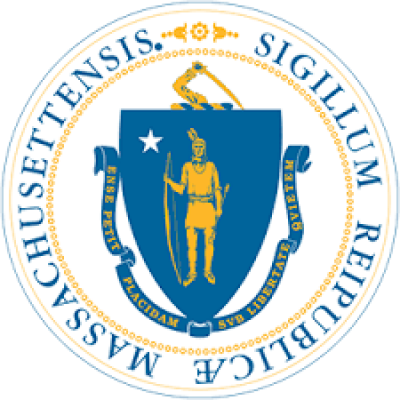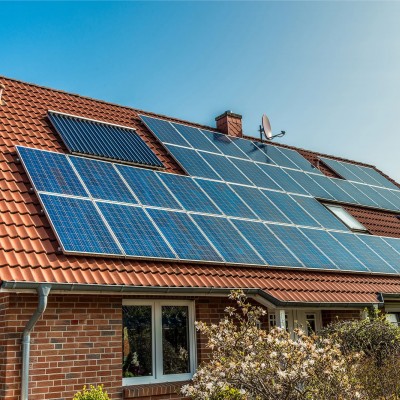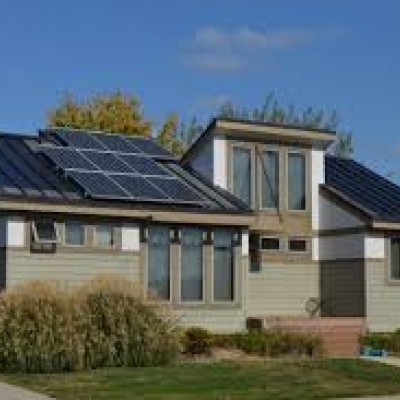Lawmakers Call on DPU to Reject Harmful Cap on Solar Credits
A bipartisan coalition of Massachusetts House and Senate lawmakers formally raised concerns to the Department of Public Utilities (DPU) about the future of clean energy under the state’s new Solar Massachusetts Renewable Target (SMART) program.
Sixteen senators and 63 representatives delivered a letter to DPU Chair Angela O’Connor to show support for expanding access to solar energy across Massachusetts while raising concerns about a utility-backed proposal to cap the amount of credits that community solar customers receive on their bills.
Under the proposal for an Alternative On-Bill Credit (AOBC) mechanism, residential customers could see a 60 percent reduction in the value of on-bill credits available through community solar projects, putting community solar at a significant disadvantage compared to rooftop solar. Utility companies have also proposed collecting revenues for the SMART program through a fixed charge that would disproportionately impact low-income customers.
“It’s shameful that utility companies want to decrease access to solar energy for millions of Massachusetts residents,” said State Senator Jamie Eldridge (D-Acton), Senate Chair of the Green Economy Caucus. “And it’s especially troubling that we’re talking about reducing credits for low-income communities while keeping them higher for wealthy households.”
Developed by the Massachusetts Department of Energy Resources (DOER), SMART is the next iteration of incentive programs that spurred the growth of the renewable energy sector in the state over the last decade. Previous programs propelled Massachusetts to become a national leader in solar, second only to California in total number of solar jobs.
“Increasing our use of renewable energy is an issue of national security, environmental preservation, and economic justice. Now more than ever, it’s important for states and municipalities to step up and lead on energy issues,” said State Representative Frank Smizik (D-Brookline), House Chair of the Green Economy Caucus. “Ensuring community solar is equitable for everyone in Massachusetts is critical for achieving our state’s ambitious energy goals and will promote additional clean energy investment and job creation in our state.”
In their letter, lawmakers expressed concern that elements of SMART, now pending final approval by the DPU, could thwart continued growth of the solar industry and slow progress in meeting climate change goals. Lawmakers also warned against environmental justice and equity impacts, citing the proposed measure would limit access to solar for millions of renters, low-income residents, and other ratepayers for whom rooftop solar is not an option.
“Massachusetts should develop policies and programs that allow all communities to participate in our clean energy economy, and in this case, that means giving renters, low income residents, and people who don’t own their homes the opportunity to choose local, clean, and affordable community solar,” said Senator Eldridge. “The utilities’ proposal would add yet another layer of inequity to Massachusetts energy policies, when the Commonwealth should be reversing this trend.”
“Community solar is already saving thousands of Massachusetts families, businesses and towns millions of dollars on their energy bills, and the utilities’ proposal threatens what has been a proven success,” said Jeff Cramer, Executive Director of the Coalition for Community Solar Access. “Our members stand ready to invest millions under the new SMART program but the DPU must demonstrate leadership and ensure that community solar shines on everyone across the state of Massachusetts.”
“Accelerating the transition to a clean energy economy requires ensuring that access to solar and other renewables is equitable for all,” said Peter Rothstein, President of the Northeast Clean Energy Council. “We urge the DPU to address the proposed barriers and increase access to community solar, a move that will bolster investment in Massachusetts and grow the Bay State’s solar workforce.”
“Solar electricity brings clean power, greater consumer choice, and good jobs to Massachusetts,” said Solar Energy Business Association of New England President Mark Sylvia. “As the SMART program approaches its launch, the DPU must make decisions that ensure that all consumers have access to affordable solar.”
“Cutting the value of the on-bill credit will disproportionately affect low-income Massachusetts residents, as well as renters and condo owners who don’t own a good solar roof. Why would we put a policy in place that discourages solar for the other 85 percent of the population who don’t own a good solar roof? Everyone in Massachusetts should have fair and equitable access to the benefits of solar power,” said Mark Sandeen, MassSolar President.
“Low and moderate income families spend a larger percentage of their income on electricity, breathe more polluted air, and are disproportionately affected by climate change,” said Paul Dale, Energy Chair of the Massachusetts Sierra Club. “Our solar policies should be helping these households, not punishing them. Everyone should have equal access to the clean energy economy.”
“The Baker Administration needs to show residents of Massachusetts that serving low-income people and renters is as important as giving ratepayer subsidies to high income homeowners,” said Vick Mohanka, Clean Energy Organizer at Clean Water Action. “It’s critical we reject the investor-owned utility proposal to exacerbate inequality and suppress community solar.”
The DPU is expected to make a decision on the Alternative On-Bill Credit within the next month.
View the letter here.


